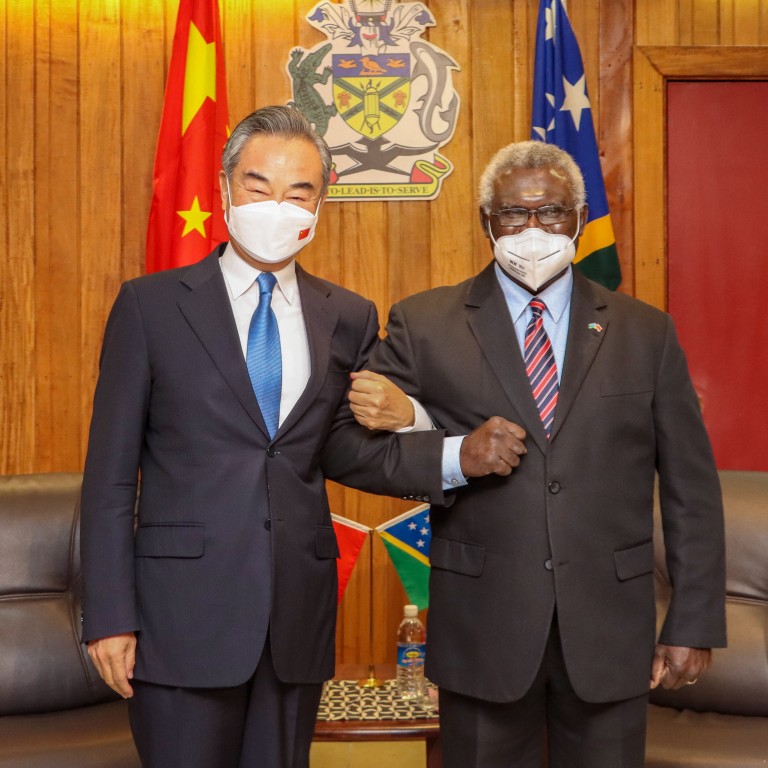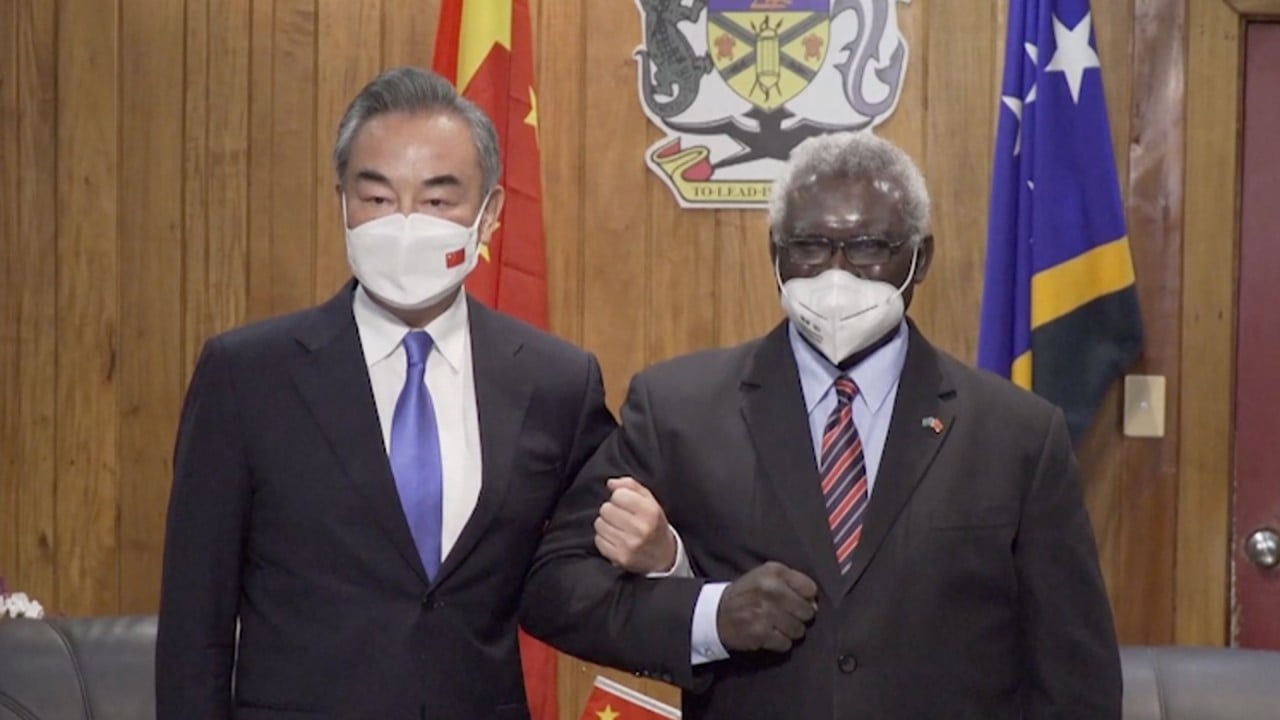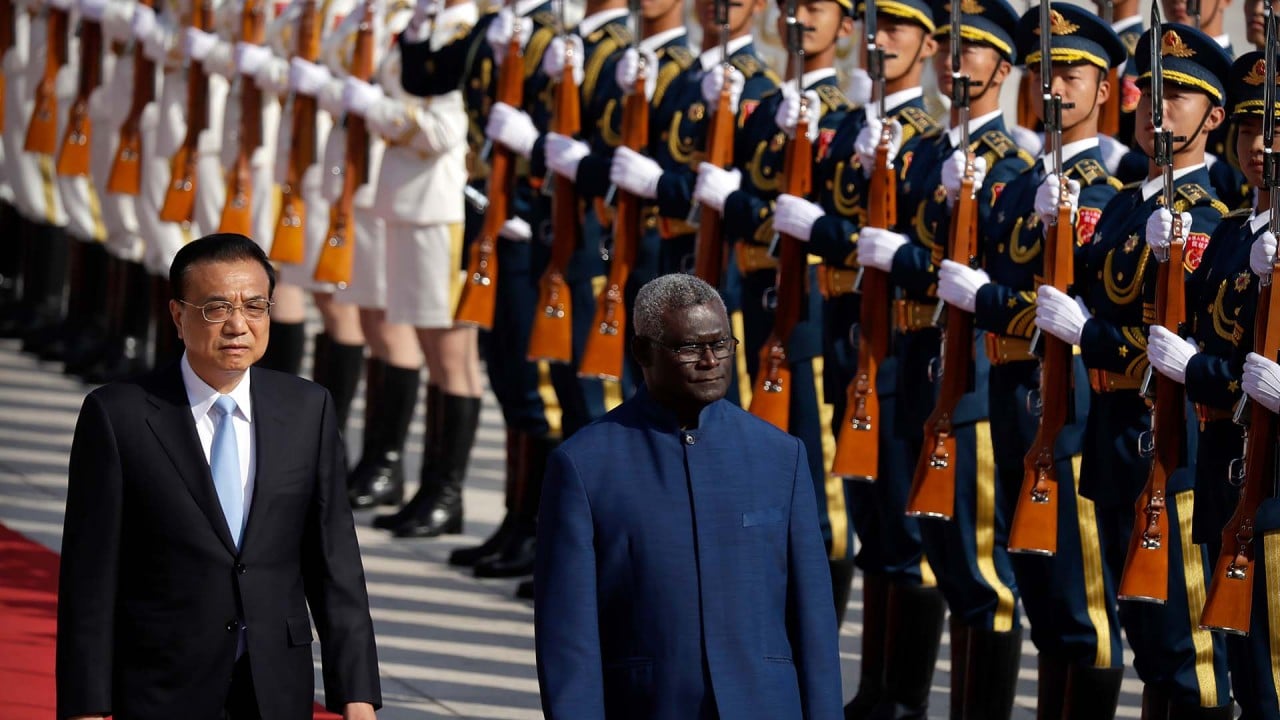
Beijing’s foreign minister tells Pacific nation the US is hindering Chinese development
- Wang Yi declares to Kiribati president that China is willing to work with developing nations to eliminate injustice
- Fiji becomes the first Pacific island nation to join US President Joe Biden’s Indo-Pacific Economic Framework
In a meeting with Kiribati President Taneti Maamau on Friday, Wang said China was willing to support developing nations.
“The world is not peaceful, the epidemic is raging, wars are frequent and poverty and backwardness can be seen everywhere. But the United States and its allies are determined to focus on deliberately hindering China’s development,” Wang was quoted as saying by a Chinese foreign ministry statement.
“China is willing to do its best to work with developing countries to accelerate common development and eliminate injustice.”
The Global Times, an English-language tabloid published by the ruling Communist Party’s official People’s Daily, reported that a road map for infrastructure construction under China’s Belt and Road Initiative had been signed, along with cooperation agreements on trade, renewable energy and customs.
Wang started his 10-day tour on Thursday, making his first stop in the Solomon Islands. He will travel to Samoa, Fiji, Tonga, Vanuatu and Papua New Guinea and hold virtual talks with the Cook Islands, Niue and the Federated States of Micronesia. He will also visit East Timor.
Following a meeting with his Solomons counterpart Jeremiah Manele, Wang said all Pacific island nations had the right to decide what deals to sign.
“Pacific island countries are all sovereign and independent countries, not someone’s ‘backyard’. They all have the right to make their own choices, rather than being the subordinate of others,” Wang said.
Beijing is seeking a robust security presence in the region, with proposals to train Pacific police officers, team up on “traditional and non-traditional security” and expand law enforcement cooperation, according to a leaked draft of the proposed agreement seen by Associated Press.
Solomon Islands says it won’t allow Chinese military base amid backlash
“The security cooperation between China and the Solomon Islands includes, at the request of the Solomon Islands, assistance to maintain social order according to law, protecting the safety of life and property, implementing humanitarian relief and responding to natural disasters,” Wang said.
“The security cooperation between China and the Solomon Islands does not target third parties, and there is no intention of establishing military bases.”
He said China supported Pacific island nations to strengthen security cooperation, and China would launch law enforcement cooperation with the Solomon Islands.
Australia scrambled to counter the move by sending its foreign minister, Penny Wong, to Fiji to shore up support in the Pacific. Wong had been on the job just five days following an Australian election and had just arrived back home on Wednesday night from a meeting in Tokyo.
In Fiji, Wong said it was up to each island nation to decide what partnerships they formed and what agreements they signed, but she urged them to consider the benefits of sticking with Australia.
“Australia will be a partner that doesn’t come with strings attached nor imposing unsustainable financial burdens,” Wong said. “We are a partner that won’t erode Pacific priorities or Pacific institutions.
“What we would urge, as Australia, is consideration of where a nation might wish to be in three or five or 10 years.”
China eyeing security pacts with more Pacific nations: FT report
Wong met Fijii’s Prime Minister Frank Bainimarama on Friday before tweeting, “regional unity has never been more important”.
When asked about Fiji signing up to IPEF, Chinese foreign ministry spokesman Wang Wenbin told reporters in Beijing on Friday that the Asia-Pacific “should not become a geopolitical chessboard”.
Additional reporting by Reuters



